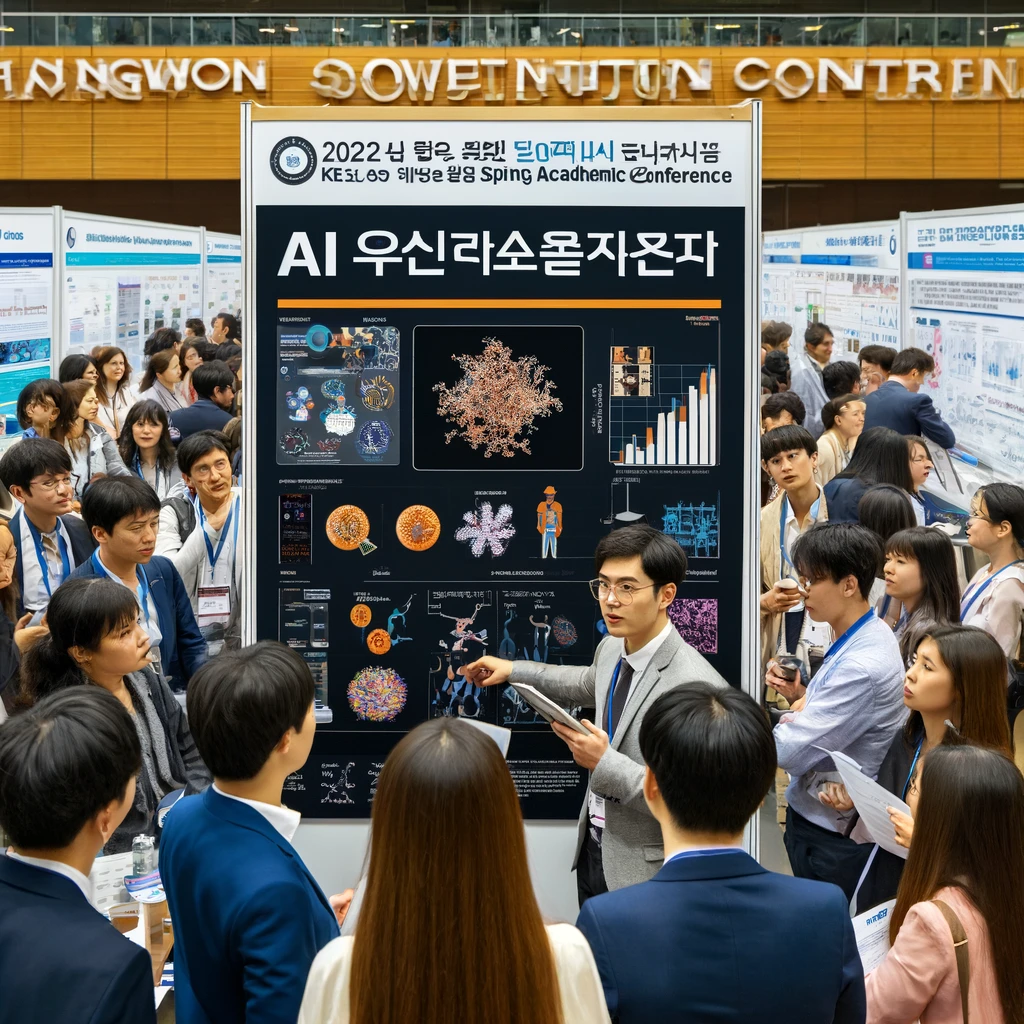Showcasing Young Bioengineers’ Innovations in AI, Bioplastics, and Biotechnology Applications
On April 18, at the Changwon Convention Center, the 2024 Spring Academic Conference of the Korean Society of Biotechnology highlighted the impressive research achievements of emerging scholars in fields as diverse as AI-driven protein design, bioplastics, and bioprinting.
Bioplastics: Navigating the Green Promise and Challenges
Dr. Shin Ki-young of the Korea Chemical Research Institute shared insights into his research on microbes that decompose bioplastics. While bioplastics are perceived as ‘eco-friendly,’ they only degrade under specific conditions. Dr. Shin’s work focuses on maintaining the usability and biodegradability of bioplastics, keeping their mechanical properties comparable to petroleum-based plastics.
Advancements in AI-Driven Protein Design
Assistant Professor Lee Sang-min from Pohang University of Science and Technology (POSTECH) introduced a novel approach using artificial intelligence to design new protein nanostructures. This technique represents a significant advancement in synthetic biology, leveraging AI to predict and model complex protein structures accurately.
Harnessing Ginseng for Cosmetics and Food Industries
Professor Shin Kyung-chul from Hankuk University of Foreign Studies discussed his research on utilizing hydrolysis to break down ginseng saponins for use in cosmetics and food additives. This process exemplifies the innovative application of biotechnology in enhancing natural products for commercial use.
The Growing Impact of AI in Biotechnology
Throughout the forum, a consensus emerged among participants that the application of AI in biotechnology is accelerating due to the increasing availability of data. Professor Han Sung-kyu from Inha University emphasized that the integration of explosive data growth and AI expertise is pushing the field toward positive outcomes. He also mentioned that while ethical issues in protein design pose challenges, these are increasingly being addressed through data-driven science.
Biotechnology’s Recognition and Potential Unleashed

Assistant Professor Lee Sang-min from POSTECH noted that the field of biotechnology, once seen as daunting and with a low success rate, is now gaining recognition for its potential thanks to advancements in computational tools and AI. He stressed the importance of better accessibility to data systems, suggesting that a communal resource management approach, similar to those in large U.S. universities and national labs, could benefit Korean research labs by making high-performance computing resources more accessible.
Conclusion
This convergence of AI, biotechnology, and innovative research is not only transforming the field but also demonstrating the limitless potential of these young researchers in shaping the future of science and technology.
Legal Battles Over Taxation on Affiliate Points: Lotte Shopping’s Ongoing Struggle
Hi, I’m [jeybee]. As a long-time resident of Seoul, I’m passionate about uncovering the authentic, everyday magic of Korea. This blog is my way of sharing my favorite spots, tips, and cultural insights with you, beyond the usual tourist traps.

